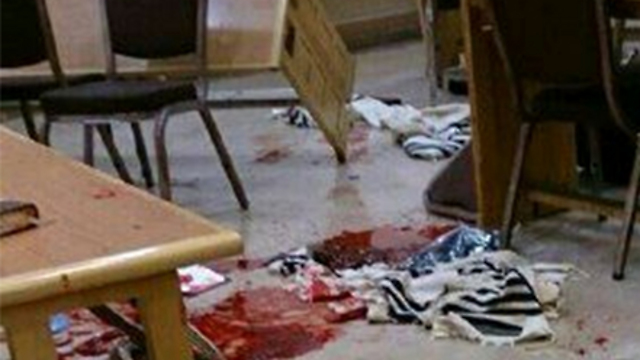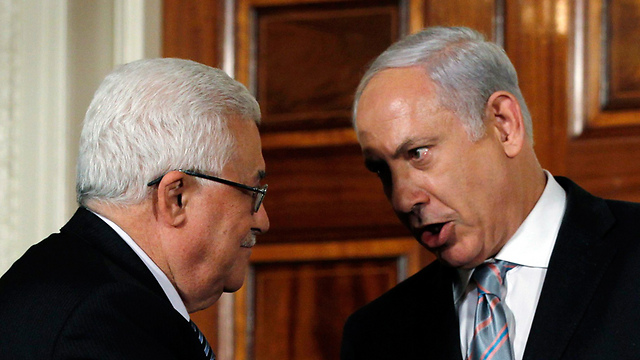
The main issue is dealing with terrorists who act without relying on any organizational infrastructure for resources or guidance on the timing and location of an attack – and this is achieved with preventive intelligence.
Murderers who operate from a strong religious motivation, be it incitement or feelings of social deprivation, can be identified in advance. In general, feelings or pressure that eventually leads someone to pick a knife or use a car to run people over, develop over a long period of time. There are people around them who notice or could notice, if only someone would require them to pay attention. This requires intelligence activity of a different kind to that provided through the current functioning of the Shin Bet.
The Shin Bet knows how to uncover and thwart attacks that rely on organizational infrastructure, communication between individuals and other elements that let it eventually reach that Palestinian woman in a remote spot who is sewing an explosives belt for someone from the next village. In fact, the Shin Bet has distilled and come close to perfecting its methods in the field, and the results prove this. Technological developments of recent years have also provided a generational leap forward, but as is standard in this field, every measure, method of operation, or even weapon soon gives rise to an antidote - as the enemy produces a way to neutralize the Israeli steps.
This is exactly what is happening now in the Palestinian arena. "Atmospheric attacks", "terror by inspiration", and "popular terrorism" are all terms for the same phenomenon. This is when there is no organizational infrastructure or trail of partners and helpers, and counterterrorist intelligence efforts must center directly on the operation itself, which must be traced using the non-physical signs it leaves.
This can be achieved even without providing the terrorists with information that might help them. It is fair to say that the increased presence of Shin Bet agents and the operation of technological measures in the neighborhoods of East Jerusalem may soon produce counterterrorist results.
First, the instigators must be identified, and after them those showing signs of religious awakening. The social networks cannot neglected in this respect, as they will help achieve exactly what Israel's political leaders claim is impossible - finding the "lone wolf terrorist".
So we shall see too that the optimal means of preventing popular terror is a policy aggressive intelligence. Aggressive but sophisticated, not indiscriminate or violent, is best suited to the new type of enemy.
Clash of Narratives
Another method that has yet to be deployed is perception. The current wave of terror in Jerusalem is a clash of two narratives, to which each party adheres without exception.
The Palestinians believe that Israelis really do intend to take over the Temple Mount, destroy the mosques and rebuild the temple on the ruins. The Israeli nationalist and religious right, and to a large extent the general public, see this Palestinian narrative as nothing less than blood libel. Israelis also see the ongoing terrorism as a Palestinian attempt to oust the Jews not only from the Temple Mount, but all of Jerusalem, and as a way of pressing ahead with their demand for their own capital in East Jerusalem.
Each side is tied to the declarations of the other. The difference is that for the Palestinians, the narrative is translated into violent, murderous action, while Israeli anger and insecurity are translated into demands from the government to take a hard line against the Palestinians or, in leftist circles, to resume negotiations. These two Israeli demands, even if met, are useless.
This is not the time to elaborate, but one might try to refute the roiling narratives on either side. In other words, make an effort to change minds, lower the tensions and calm the inflamed passions a little.
This first of all requires a degree of confidence, but anticipating trust between Palestinians and Israelis is like anticipating the coming of the messiah. Nonetheless, it is possible to create a temporary trust through statements from the political leaders on both sides. If Netanyahu and Abbas were to issue a joint statement that distinguished between myth and fact in the aforementioned narratives, it would help. Perhaps more important would be statements by religious leaders, which would help to prevent a bloodbath.
The Palestinian Authority has control over and the ability to direct the media in the West Bank and Jerusalem. The government of Israel can speak freely in the Israeli media. This can be exploited to tell both the Palestinians and Israel that a continuation of the current situation could lead us to the plight in which the citizens of Syria, Iraq, Yemen and other countries in the region find themselves. The Palestinian street will grasp this, as will the Israeli public.
Another step that could be is offering economic benefits to the Palestinian population and creating jobs for the unemployed youth. Past experience has shown that economic factors have a major long-term impact. It was proven in the Arab Spring, which was primarily triggered by economic hardship, and by the fact that the West Bank is relatively quiet as a result of its improved economic situation given events in Gaza and the region as a whole.
The government of Israel could also try to take clever steps to calm the situation using social networks, which are popular among the Palestinian public, especially the young.
Israel's political leaders and security chiefs should stop trying to breathe new life into old methods. A new situation requires innovation, like Israel's Operation Defensive Shield at the height of the second intifada. The key outcome of that was a shift in consciousness on both sides, and the development of an intelligence assault on Palestinian terrorism, in conjunction with an IDF presence in population centers in Judea and Samaria.


















